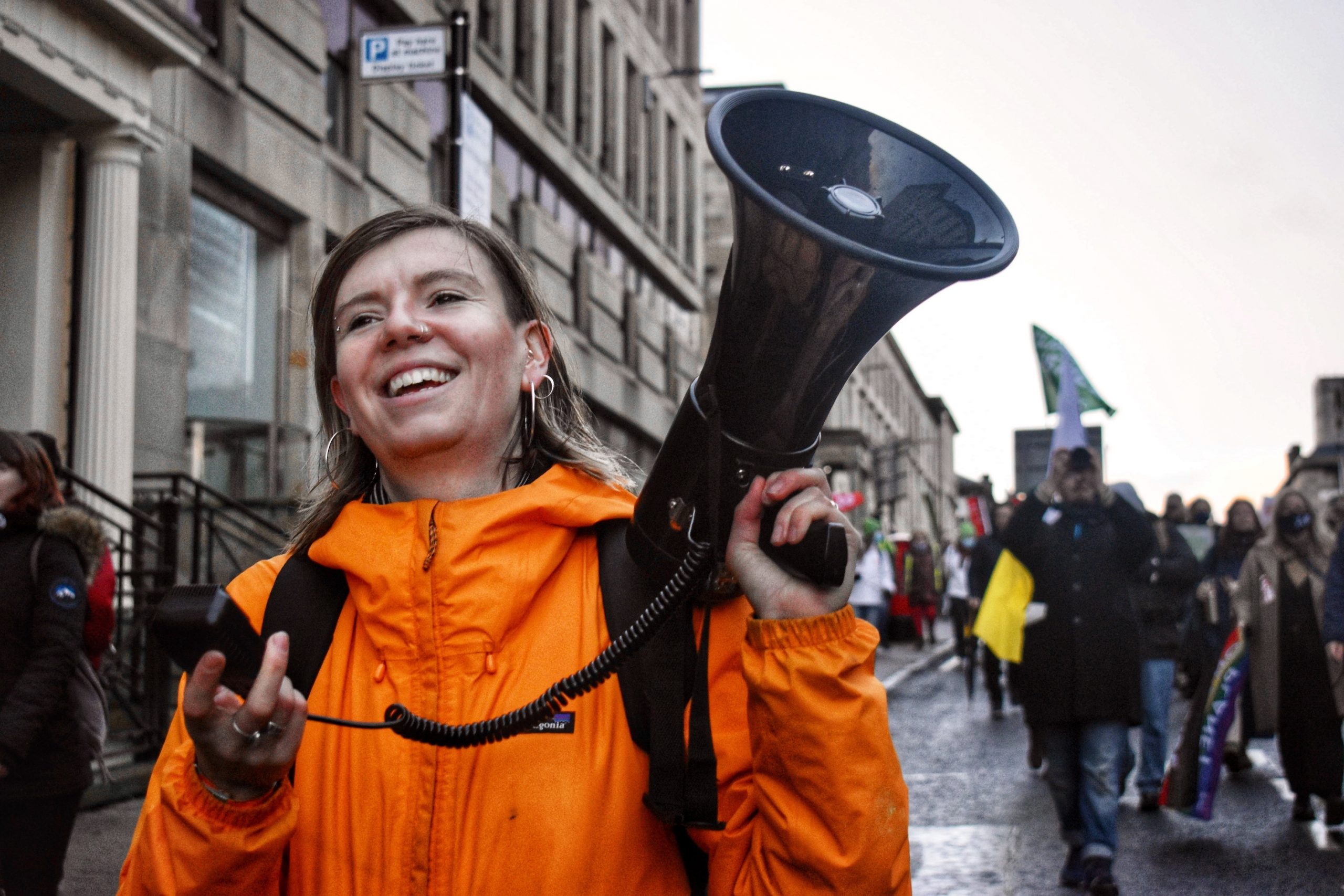
New report from environment campaigners challenges Scottish Government to do better than 42% carbon cuts by 2020
According to research published today (1 November) by Friends of the Earth Scotland, meeting our climate targets could increase employment, cut health-care costs and reduce social exclusion.
The report, ‘42% Better’, identifies extra jobs in energy efficiency and public transport, health care savings arising from reduced obesity, improved mental health and reduced respiratory disease, and social inclusion gains from reductions in fuel poverty amongst the many non-environmental benefits of a strong climate policy. Even in the limited case studies examined, the estimated value of the health benefits alone exceeds £2bn.
Duncan McLaren, Chief Executive of Friends of the Earth Scotland, said: “More than ever, in a time of budget cuts and economic austerity, Scotland must push ahead with the investment needed to deliver its world-leading climate targets. The health, employment and social dividends will be substantial and will create a better life for all of us.
“The report focuses on policy measures in the parts of our economy unaffected by the European Union’s emissions trading scheme: such as housing, transport and agriculture.”
For example, improving and insulating the homes of those in fuel poverty in Scotland, could avoid an estimated 180,000 cases of anxiety and depression each year, and cut days lost to work and school as a result of respiratory illnesses by up to 25%. The increased levels of fitness resulting from raising cycling rates to Danish levels could save over 1,600 lives a year, and help cut obesity rates in Scotland in half, especially if supported by the widespread adoption of low-carbon, low-meat diets.
The report also analyses official data to confirm the practicality of ambitious targets. It concludes that Scotland can reduce climate changing emissions by 17.3 million tonnes a year by 2020, delivering a 43% reduction on 1990 levels. This level is possible even if European climate policy remains unaltered. If the EU raises its ambitions, emissions could fall by over 20 million tonnes (49%).
McLaren continued:
“Scotland’s politicians already understand the economic benefits that could come from increased renewable energy. This research shows there are even bigger bonuses to be found in the less glamorous but equally important areas of insulating buildings, getting people out of cars and onto bikes and buses, and changing diets.
“Later this month the Scottish Government will publish its ‘Report of Policies and Proposals’, setting out how it intends to deliver its climate targets.
“The Government must ensure that its proposals can deliver at least 42% even without elevated European action. If Europe moves later then Scotland can take the gains as a windfall, and reap even more benefits.
“The Government must also include the funds needed to deliver carbon cuts in its budget, or else show how it will lever in the necessary investment from private or other public sources. All Scotland’s politicians must be prepared to support tough decisions such as cutting capital spending on projects which would increase emissions – such as new roads, and putting in place regulations that can lever in private spending – such as rules to require housing improvements before sale or rental.”
ENDS
For media enquiries please contact:
Per Fischer, Press Office, Friends of the Earth Scotland
t: 0131 243 2719
Notes to Editors
42% Better: the feasibility and added value of meeting Scotland’s climate change target for 2020 is available at www.foe-scotland.org.uk/42percent-report
Friends of the Earth Scotland exists to help people in Scotland look after the planet for everyone’s future. We think globally and act locally in Scotland, delivering solutions to climate change by enabling and empowering people to take both individual and collective action. We offer help to people with the big things in life – helping to sustain a healthy society and environment. We believe that all of our children’s futures will be better because of what we do. www.foe-scotland.org.uk
